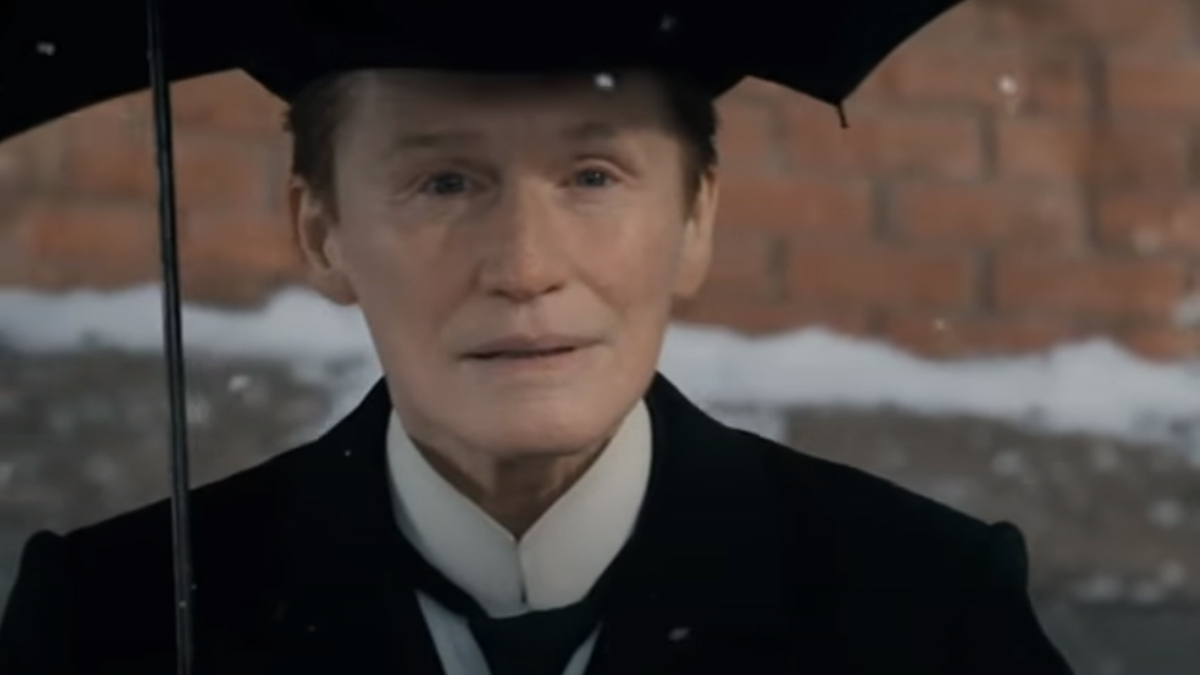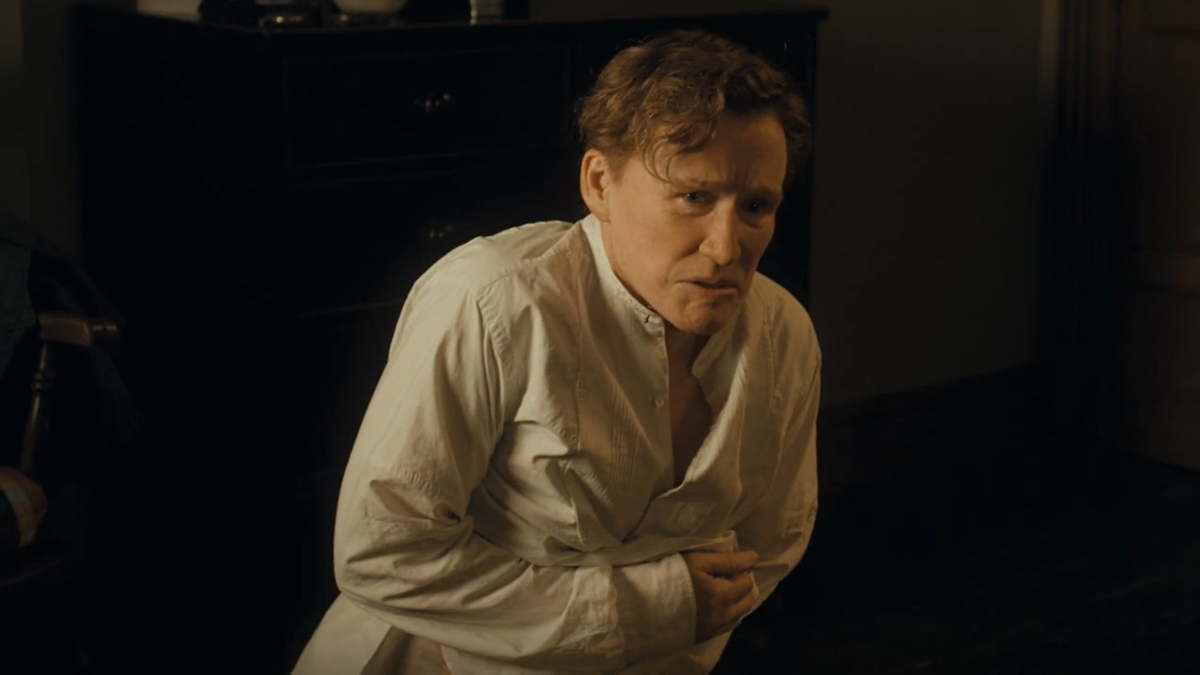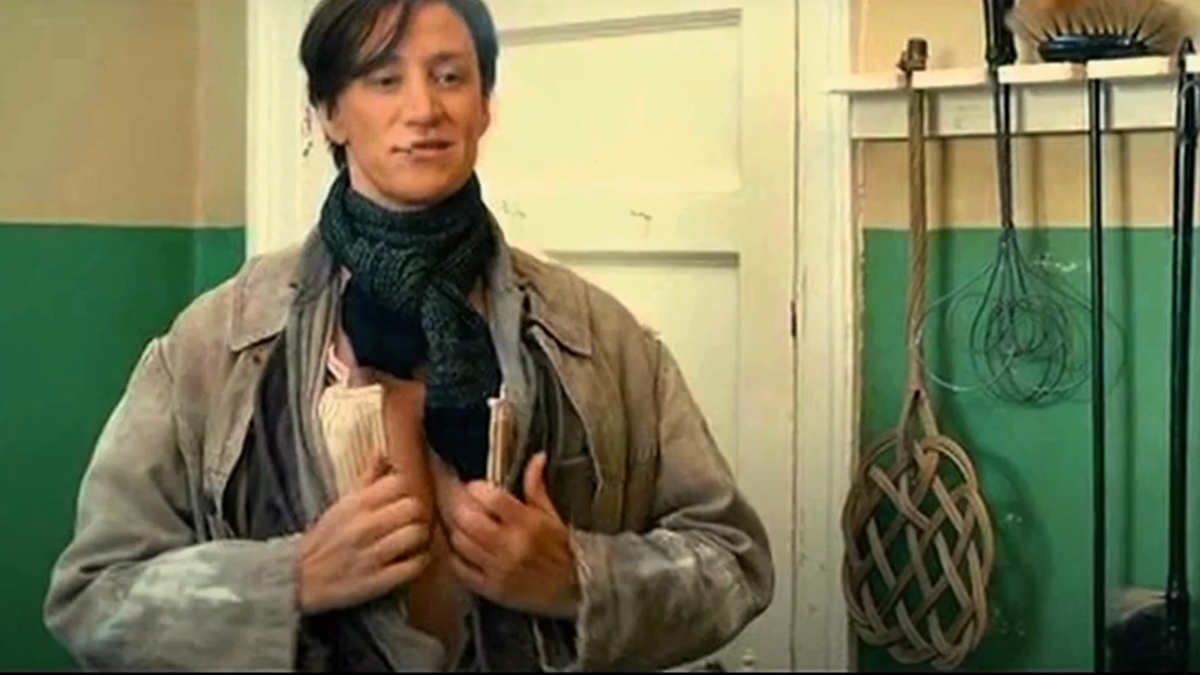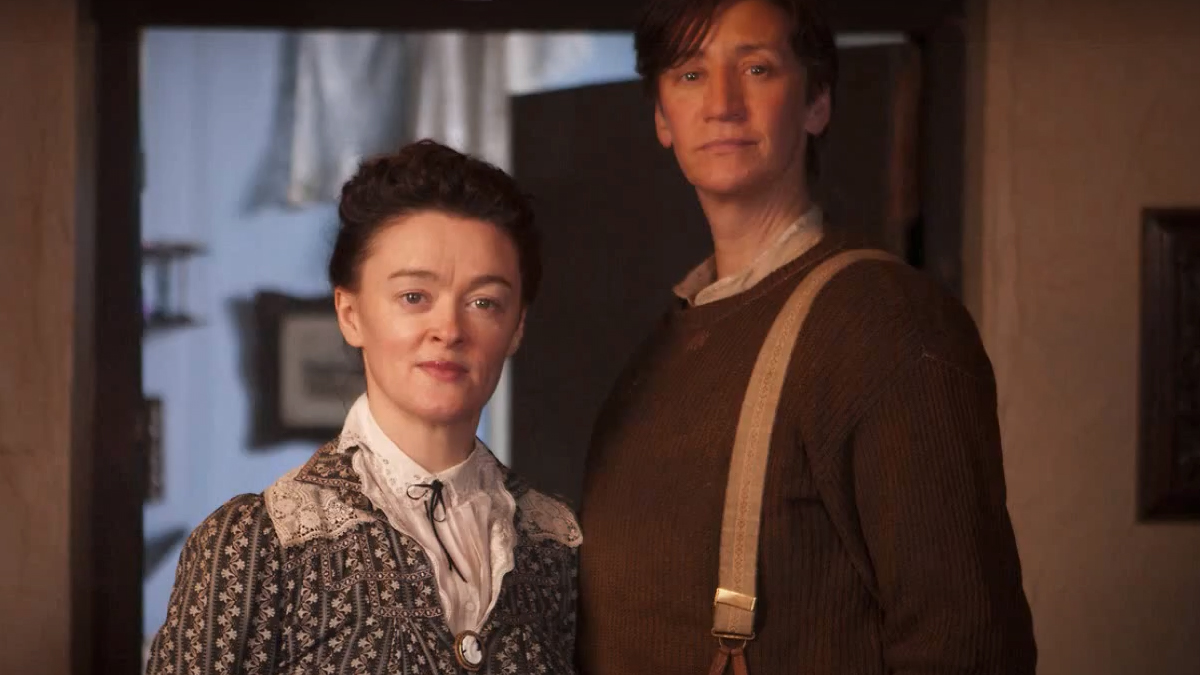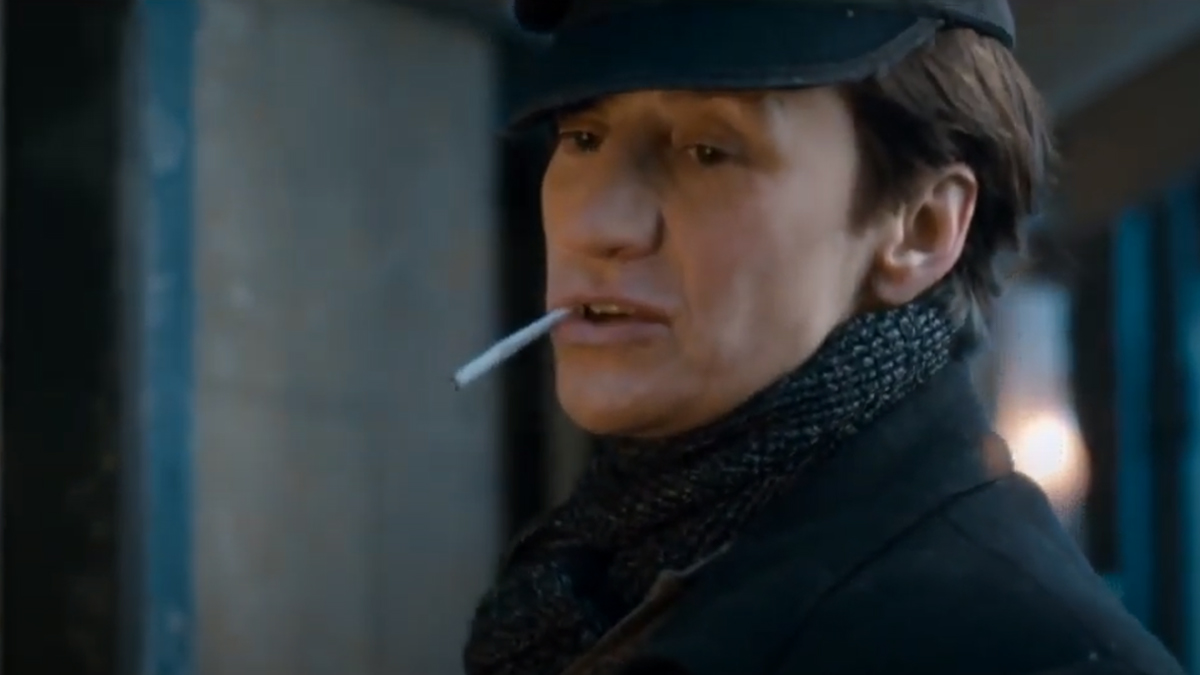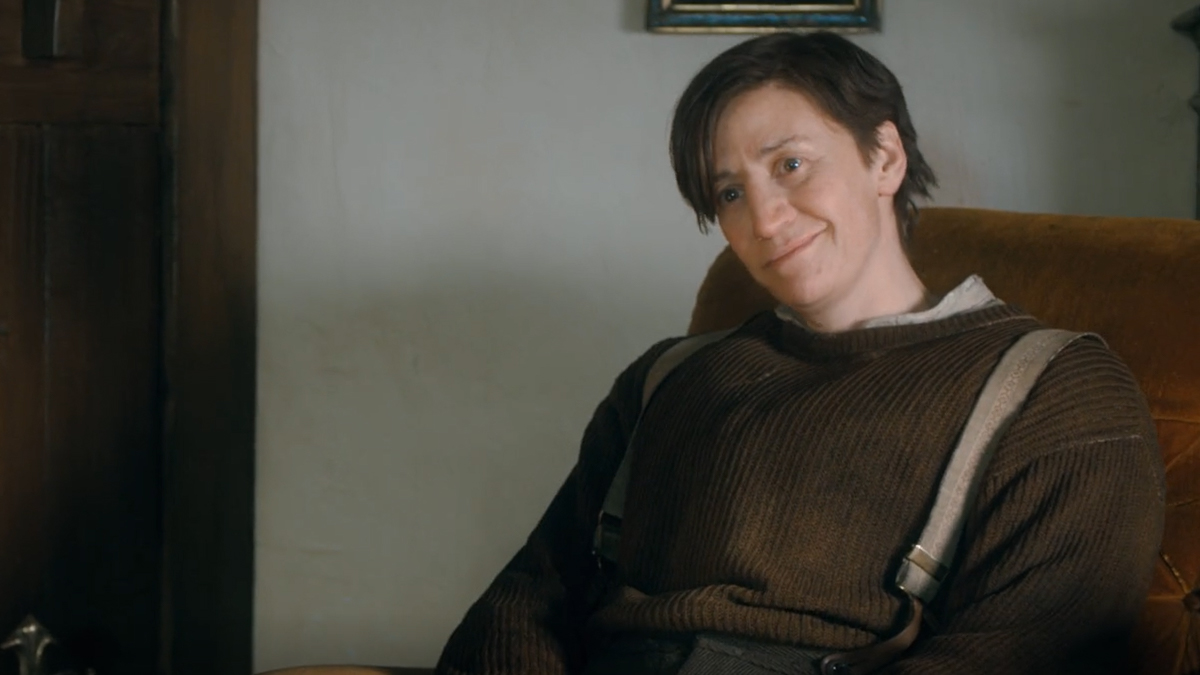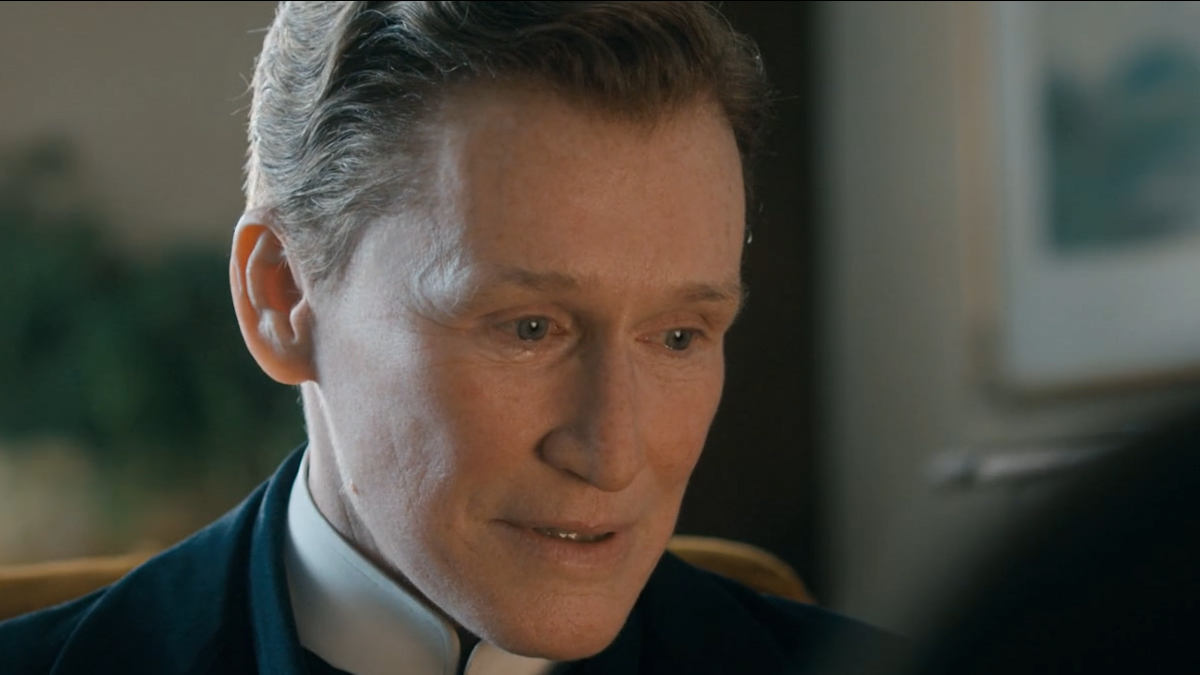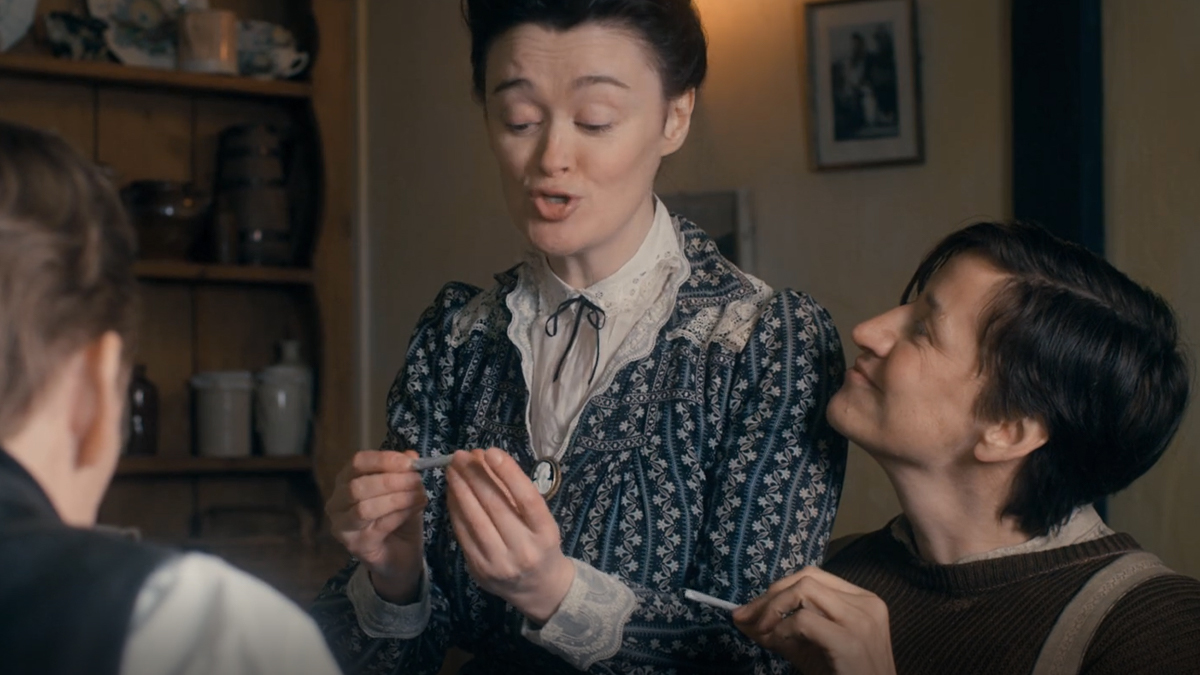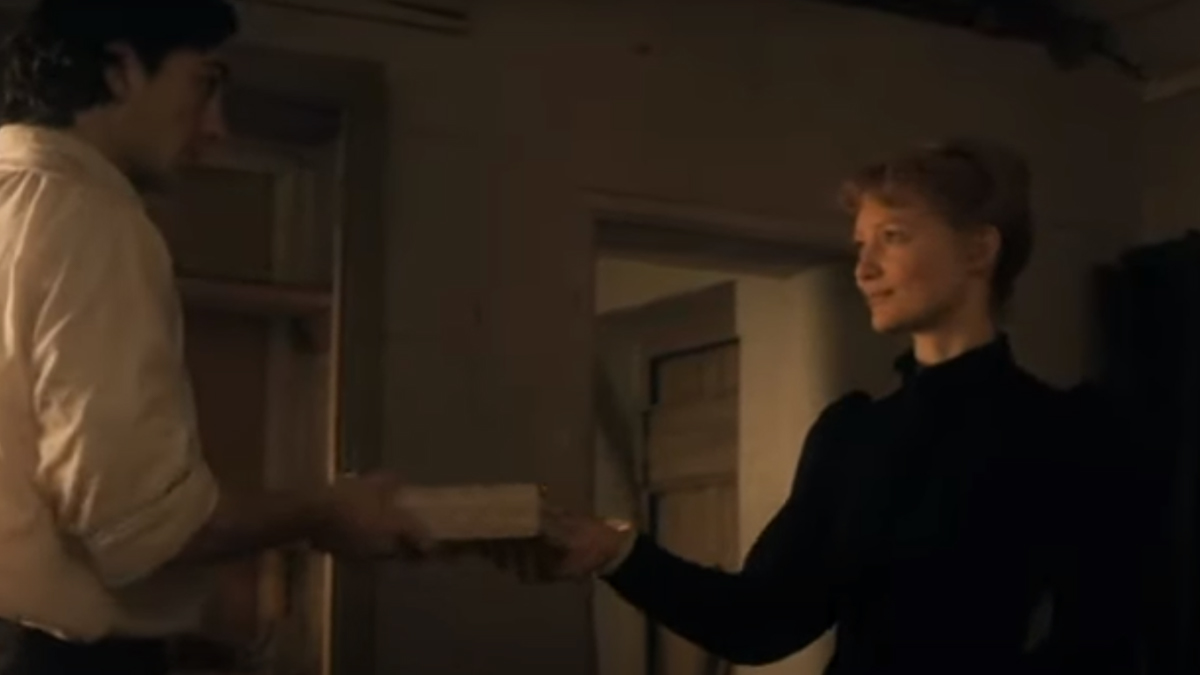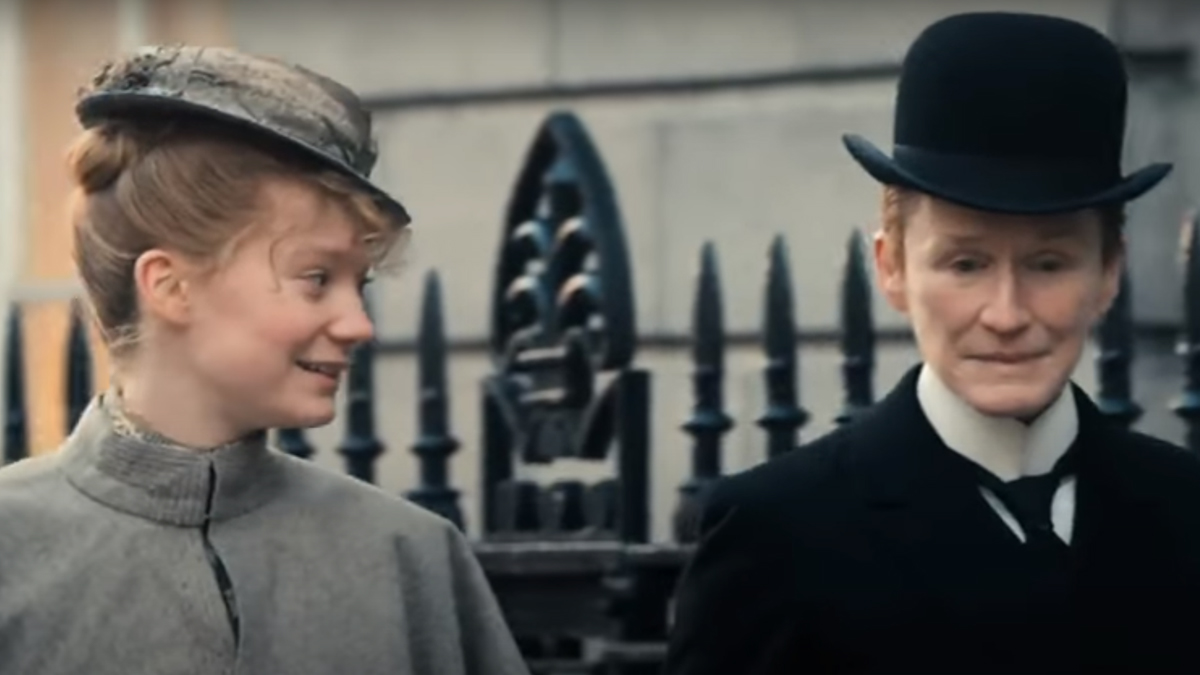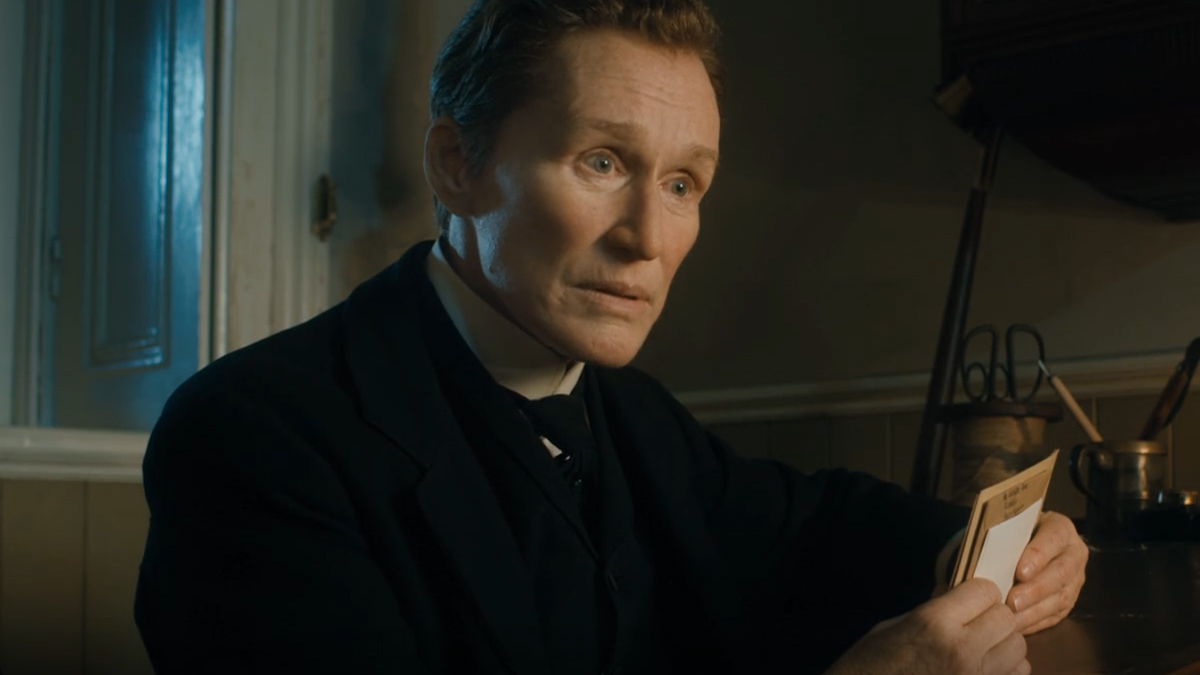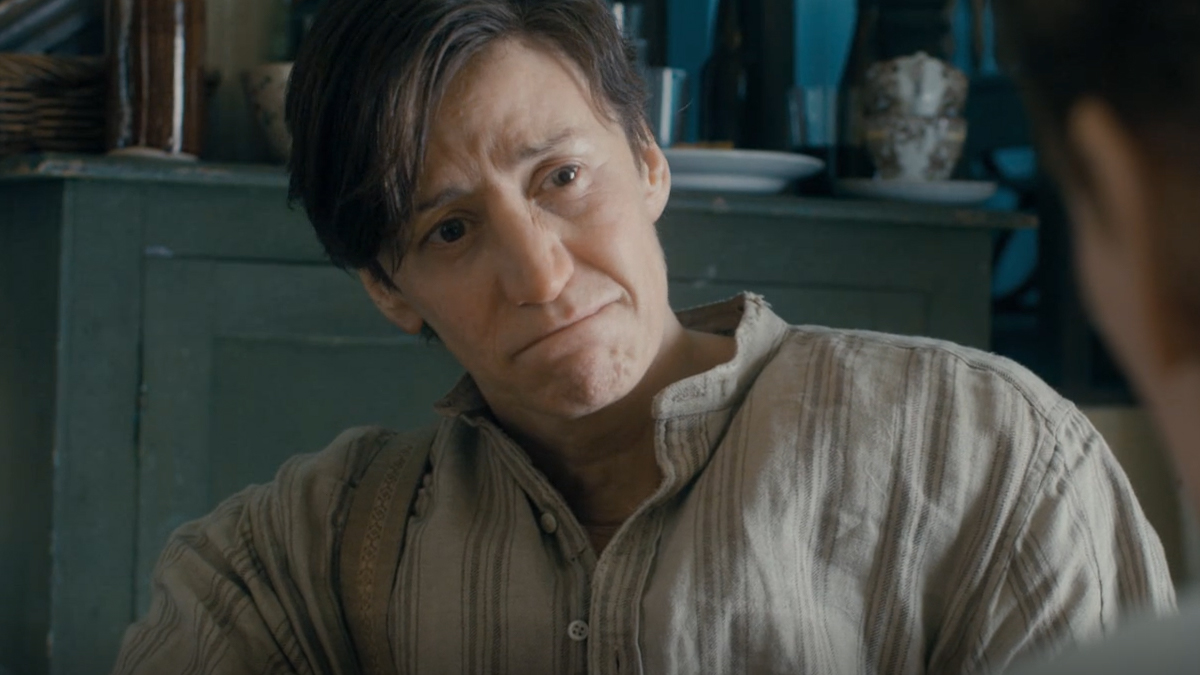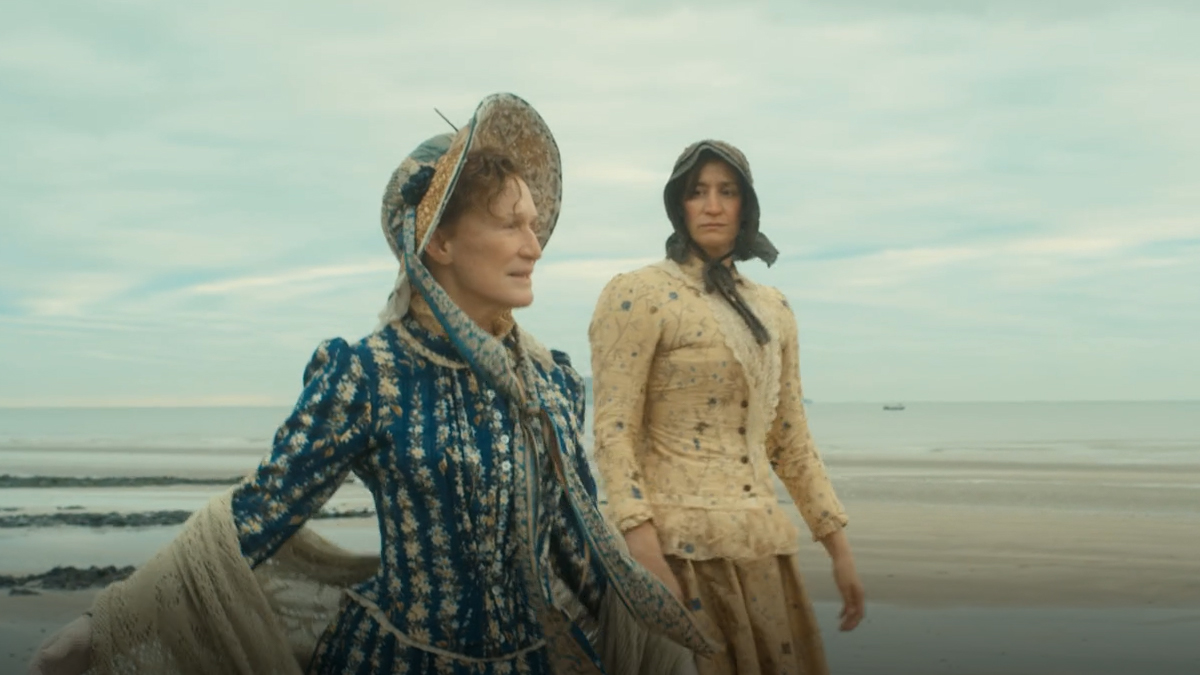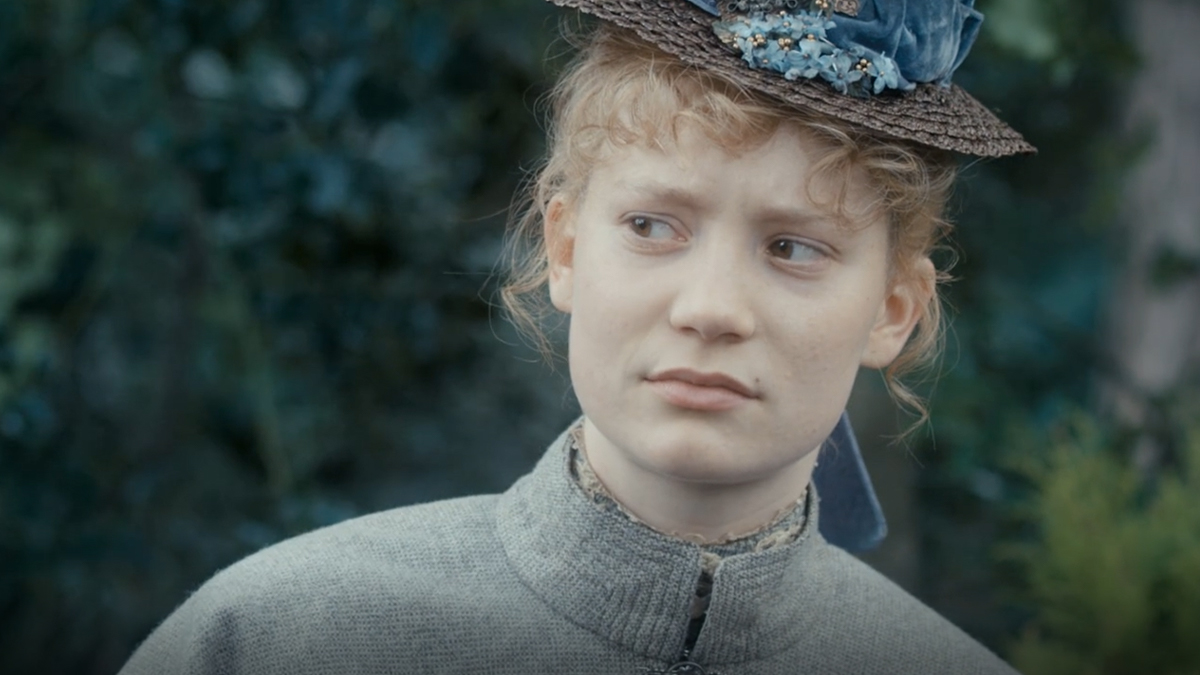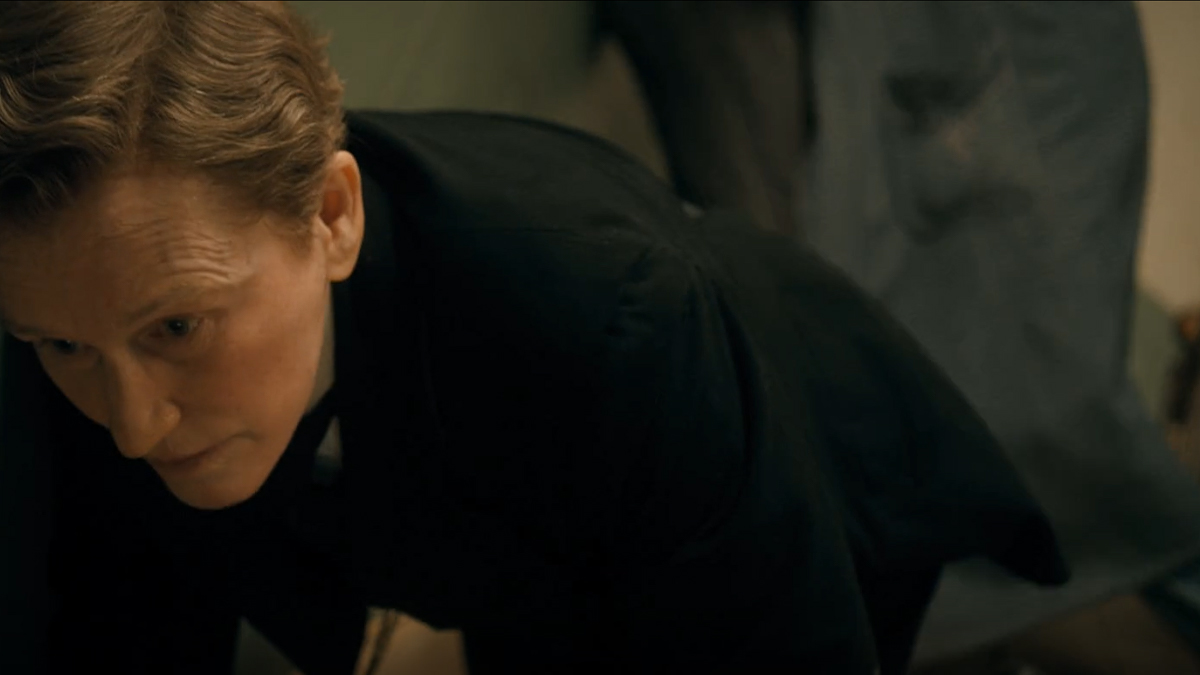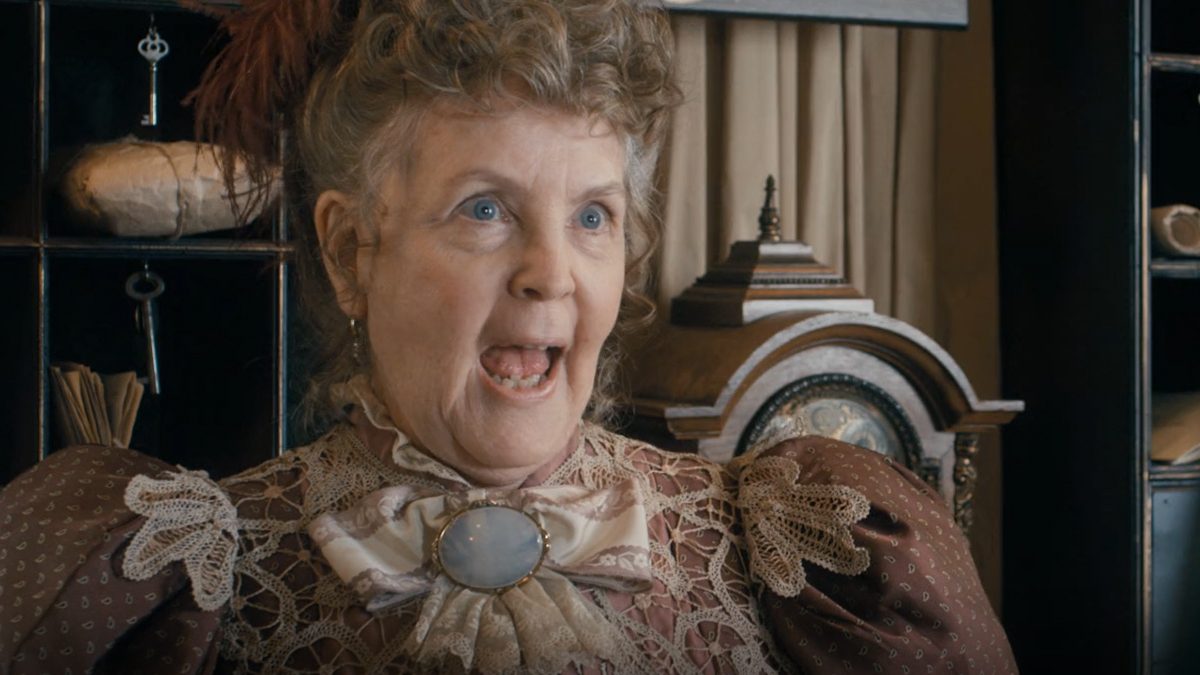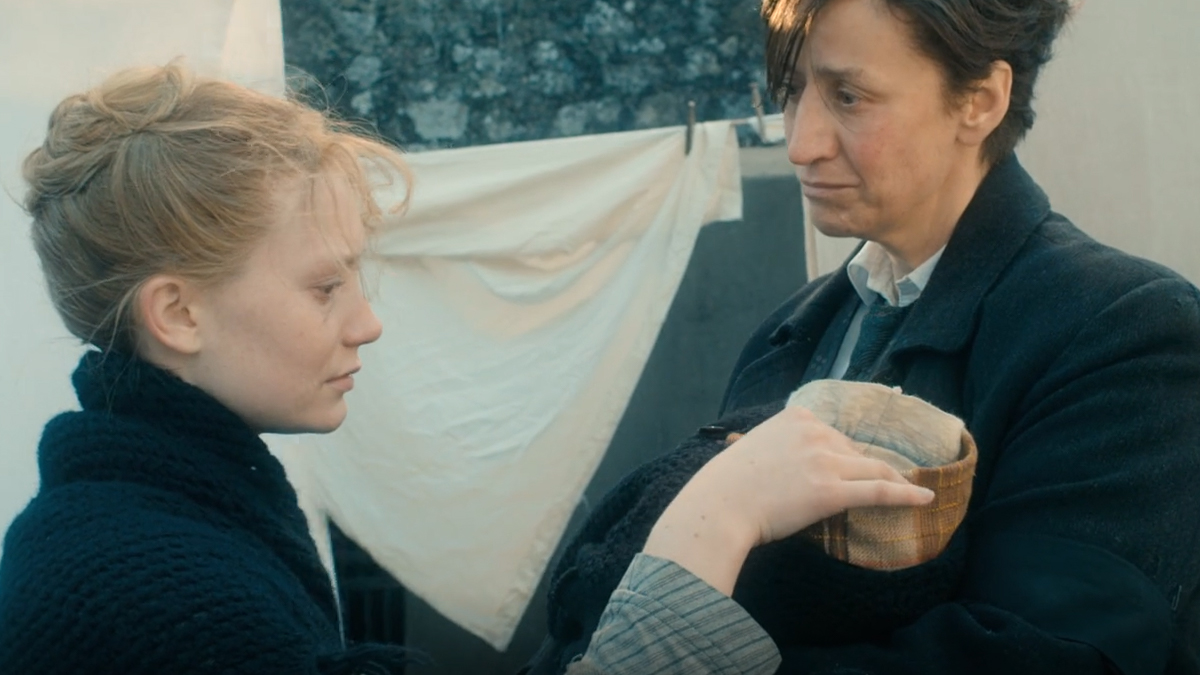In light of ongoing controversy about trans roles and my own undying love for queer history, I would like to share my impressions of a movie I WANTED to love, and how it embodied a plethora of harmful transmasc stereotypes. This is a thread about the movie "Albert Nobbs":
(CW misgendering, transphobia specifically aimed at trans men, sexual assault, brutal violence) Also, please be prepared for HEAVY sarcasm on my part.
The transmasculine MC of this movie is played by Glenn Close, who states the protagonist has “shut a part of herself down” (read: “womanhood”) as a result of severe mental illness. This interview is telling of her approach to the character: https://bit.ly/2CdCiNo ">https://bit.ly/2CdCiNo&q...
20 minutes into AN, the MC’s “secret” is revealed to the audience and a (at this point presumed cis) man through a contrived accidental nudity scene. Albert grovels on the floor in a flood of terror that can truly be said to go down among film history& #39;s “trans insanity moments”.
Fortunately for our MC, his discoverer, Hubert, reveals he has a similar “secret”. It turns out he escaped from an abusive husband. And as we all know, the common response for a woman who has survived abuse is to decide to live as the opposite gender for the rest of her life.
Albert is shocked to learn that Hubert has a wife. Scandalous! But don’t worry- Hubert admits they are just two women sharing the rent. We are all chaste here. Playing house. This notion clearly catches poor lonely Albert’s imagination.
Hubert asks Albert what his “real name” is. (You know, his REAL name) “Albert,” says Albert. Hubert
is visibly disappointed, but lets it go.
is visibly disappointed, but lets it go.
Albert seeks out Hubert and his, err…”roommate” Kathleen outside of work. He’s surprised to find Kathleen is real and Hubert lives as a man 24/7, just like Albert. Hubert claims it’s to keep the neighbours from finding him out. (Okay, Hubert.)
Now Hubert wants to hear Albert’s trauma story. What inciting incident caused Albert to live as a man? It turns out Albert was brutally gang-raped as a 14-year-old. Naturally, it is implied that his assumed maleness derives from this trauma.
In ensuing conversations, Hubert becomes more supportive of Albert. He encourages the MC to pursue a coworker at the hotel where he works. Hubert and Kathleen’s words come off as a joking pantomime of cishet sexuality. Wink wink. Don’t forget we’re all just playing dress-up!
Bolstered by his newfound acquaintances, Albert decides to ask out his coworker- Helen the maid. Helen isn’t into him. But she’s got a con man boyfriend, Joe, who senses an opportunity! Why not lead the “freak” on and drain him for money so they can run away to America?
Helen isn’t very enthusiastic about this plan, not because she respects Albert, but rather because something about him just doesn’t seem right, and she wants nothing to do with him. Joe’s abusive macho posturing is quite tolerable in comparison.
Albert, meanwhile, exists in a dream world where he can just “acquire” Helen and all the privileges of a conventional, white, middle-class cishet masculinity by saying and doing the right things. This is his sole personality trait and only goal in life.
TYPHOID STRIKES. After surviving the illness alone, Alfred visits Hubert, and discovers Kathleen has fallen sick and died. Alfred offers to take Kathleen’s place. Hubert is shocked at the suggestion. It seems Albert has a lot to learn about how real human relationships work.
Kathleen was a dressmaker. Hubert suggests he and Albert spend the day in dresses in her honour. Both are awkward at first, but remember they actually LOVE being women! Alfred still goes back to living as a man. (Don’t worry, the story will make him he will pay dearly for that!)
Albert returns for a final outing with Helen. He’s learned that she’s pregnant, and Joe has no intention of sticking around. Stability and money-obsessed Alfred leverages this to try and coerce her to marriage. (that’s not how it works, Alfred!) She rebuffs him. (rightly so)
By this point everyone at the hotel knows what’s up with Joe and Helen. They’re in the middle of another argument when Alfred walks across the hall to intervene. In the ensuing commotion, Joe gives Alfred a severe head injury. Nobody seems to notice.
Helen seems to have a change of heart about Alfred, now that he displayed some backbone and her boyfriend has gone for good. Too bad Albert is dead. His savings are stolen and he is misgendered in death. In the words of his employer to Hubert, "It’s in all the papers”!
Hubert encounters Helen with her new baby. She named the baby Albert (after a person she hated and barely knew?) Hubert offers to take care of them both. And the camera fades to black.
Now I will reiterate that I dearly wanted to love AN. There is a lot to appreciate in this movie and I don’t think the creative team’s intent was malicious. But there is, unfortunately, a lot of unexamined transmasculine-specific transphobia to process here.
The character of Alfred Nobbs reads like a TERF fever dream of transmasculinity: a “damaged”, mentally ill woman who crossdresses to attain safety following extreme trauma at the hands of men, and whose sole goal in life is to “attain cishet male privilege”.
Enter the savior- Hubert, who is implied to be a self-aware butch lesbian intentionally playing at manhood. They are here to make this poor deranged woman “whole” again by reintroducing her to the wonders of womanhood. And if she fails to accept their remedy? Well-
She will die abandoned and alone. That is the TERF ultimatum. Trans men (who do in fact face terrifyingly high rates of abuse and sexual assault) are only entitled to love, respect, and the services and resources of survivors if they detransition and rejoin “the sisterhood”.
TERFs regularly weaponize trans men’s trauma histories against them as a particular insipid form of grooming. The fact that trans men are often silenced and erased when they try to give voice to their ongoing trauma makes this tactic especially powerful.
The only emotion that Albert Nobbs can elicit from an audience is pity. (The NY Times call his life “charming and sad”!) And this, from the perspective of a TERF, is the only emotion that trans men deserve.
The transmasculine characters in AN (including Hubert) also serve another purpose. Their entire lives revolve around uplifting and rescuing cis women. They are empty husks devoid of meaningful goals. Only the cis women in their lives can give them meaning.
This is the role of trans men within TERF circles. They are not humans, but rather, talking points to be trotted out in another calculated attack on trans women. TERFs hold the lives of isolated trans men hostage in service to this sick, manufactured war.
And of course, the transmasculine characters of AN are passionless and largely stripped of their sexuality. They have no desires of their own, and exist as fetishized objects of a “safe” masculinity for the consumption of cis women.
Trans men and transmascs can be asexual and/or aromantic, like anyone else. But this is a function of their personhood. The transmascs in AN don’t get the privilege of agency. They are coercively neutered. Even their emotional needs are all but erased.
Albert himself is depicted as uniquely undesirable. This is an intentional decision on the part of the creative team behind AN- to make Glenn Close look more like a cryptid wearing a human suit than a regular man: https://www.youtube.com/watch?v=_R2BdIexyvo">https://www.youtube.com/watch...
The first thing transmasc people hear when we begin to transition is that we are “wasting” our reproductive function (as if this is our sole value) and making ourselves ugly, toxic and unloveable. AN leans into this with the zeal of a cautionary tale.
Albert is also deeply isolated. No family. No community. Few friends, even among his coworkers. He leads a solitary, stealth existence in constant fear of discovery.
But the price he pays for tolerance is that he must defend others, and always put their needs before his own, even from this place of extreme vulnerability. No one will come to his aid in return when he needs it most. And even the blame for that will fall on his head.
Transmasc people frequently end up in a position where predators and abusers take advantage of our isolation while gaslighting us about the systemic oppression we face.
We believe we “can’t expect better” when the communities we come from disown us, only to escape into “found families” that treat us as disposable props, projecting narratives onto our bodies even as they strip us of the language to describe our messy lived experiences.
The life Albert leads is the life we are taught to expect as a fair price for our “betrayal” of womanhood. Many of us internalize these beliefs. We go on to silence and tone-police ourselves under the misguided assumption that it will lead to our acceptance.
“Albert Nobbs” was painful for me to watch because it felt like the embodiment of every transmasc person who didn’t make it. A silent epidemic of intimate partner violence, gendered abuse, harassment, dehumanization, “corrective rape” and ultimately, suicide.
I think we deserve better than Albert. We deserve more than “charming and sad.” We do not exist to uplift cis women. And when we are coerced into participating in transmisogyny by false “allies” for crumbs of cis tolerance, we only shoot ourselves in the foot.
And that, I suppose, is my rant for tonight.

 Read on Twitter
Read on Twitter